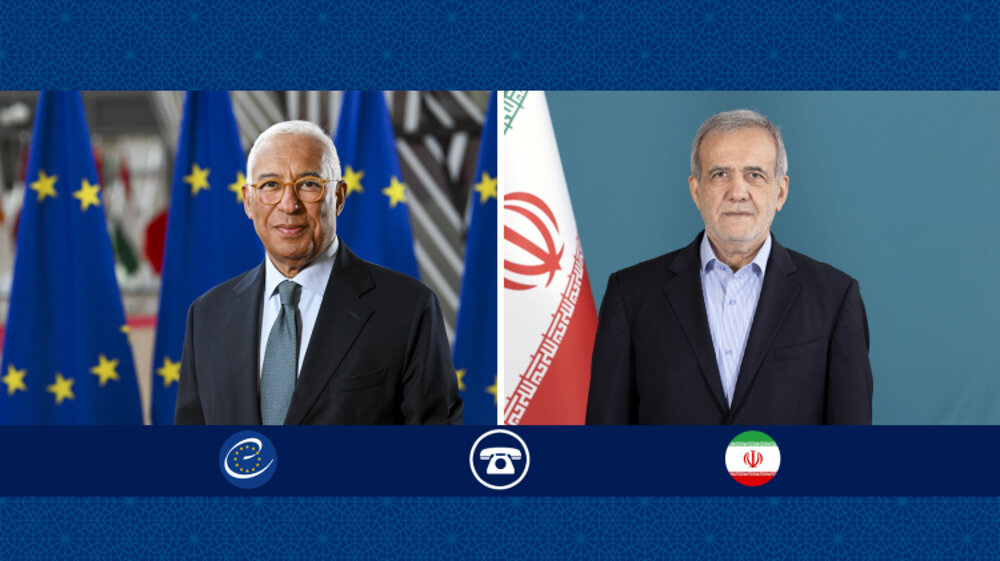‘Firmer reprisal’ awaits aggressors, Pezeshkian warns while demanding IAEA reform

TEHRAN – Iranian President Masoud Pezeshkian delivered a stark warning to Israel and the United States on Wednesday, declaring that any renewed act of transgression against the Islamic Republic would be met with a "firmer and more chastening reprisal."
The statement came during a phone discussion with European Council President Antonio Costa, underscoring Tehran's posture of strength in the wake of the U.S.-Israeli 12-day war on Iran.
Pezeshkian stressed that Iran’s resolute retaliation to the Israeli aggression last month, which resulted in over a thousand martyrs, including top commanders, showcased its steadfast determination.
He pointedly noted that the Israeli offensive, conducted with U.S. coordination despite ongoing indirect nuclear talks, was ultimately halted only after Iran's powerful retaliatory strikes under Operation True Promise III forced a halt in fighting declared by Washington on Tel Aviv’s behalf on June 24.
The U.S. had escalated by attacking Iranian nuclear facilities on June 22, prompting an immediate Iranian strike on a major U.S. base in Qatar.
Turning to Iran's peaceful nuclear program, the President laid out Tehran's conditions for re-engaging with the International Atomic Energy Agency (IAEA).
He firmly stated that the "resumption of cooperation hinges on the correction of the double standards regarding Iran's nuclear case."
This demand builds upon Iran’s latest legal actions. In late June, the Constitutional Council ratified a parliamentary bill mandating the suspension of all cooperation with the IAEA, which was subsequently signed into law by Pezeshkian.
This move, President Pezeshkian explained, was a necessary "reaction to the biased and unprofessional performance" of the IAEA Director General Rafael Grossi.
The suspension law cites the agency's compromised credibility due to its lack of impartiality in reports, its silence over attacks on Iran's sovereign nuclear facilities, and its failure to condemn blatant violations of international law.
It mandates that cooperation will only resume once Iran receives full assurances regarding its national sovereignty and territorial integrity, specifically the security of its nuclear sites and scientists, and the recognition of its inherent rights under Article 4 of the Nuclear Non-Proliferation Treaty (NPT), including uranium enrichment.
President Pezeshkian reiterated Iran's fundamental commitment to "constructive interaction and effective dialogue with the world," stressing Tehran's dedication to regional and global peace and security.
He pointed to the Israeli regime as the source of the recent disruption, describing its actions as coordinated with the U.S. "Undoubtedly, the Zionist regime would not have been able to carry out such an action without coordination and permission from the United States,” he stated.
Despite the tensions, President Pezeshkian expressed Iran's readiness to improve relations and resolve issues with the European Union through "constructive and respectful dialogue."
European Council President Costa, in response, conveyed the EU's condolences for the Iranian lives lost in the Israeli attacks and affirmed the bloc's insistence on resolving issues diplomatically.
Costa also said he urges international organizations to avoid double-standard policies, aligning with a key Iranian demand regarding the IAEA.
Leave a Comment